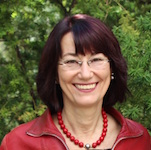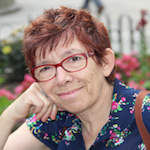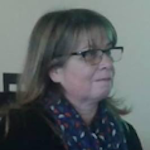The Project
Ble*Teach is an Erasmus+ Project funded from November 2015 to April 2018. This project has partners in Belgium (French speaking community), Germany, Hungary, Portugal, Romania and Russia and aims at “Developing a Blended Learning Course in Content Area Literacy for Secondary Teachers” (Project subtitle).
Its superior goal is to enable teachers of all school subjects to integrate disciplinary reading, writing and learning strategies into their daily classroom practice in order to make content learning of their students more effective.

The Ble*Teach project addresses two crucial needs in teachers ́ continuous professional development (CPD) in most European countries
1The unsatisfying structures of teachers’ continuous professional development (CPD): In many European countries, the time for face-to-face learning in teachers´ CPD is limited to a few days per year and thus privileges “one-shot-approaches” which are not effective in changing classroom practice (as research has proven). Therefore, BleTeach will explore and analyse the most promising formats in blended learning offers in CPD in order to develop and implement a blended learning course (BLC) for secondary teachers (and teacher trainers).
2 The lack of expertise of secondary school teachers, i.e. content area teachers, to address the problem of low literacy skills of children and adolescents. The term content area literacy (CAL) refers to teachers’ competence to deal with reading / writing and learning instruction not only on elementary level in the language arts classes, but in all subjects and all school levels. But in most European countries, content area teachers are not trained to fulfill this task. The BleTeach course intends to address these deficits of initial teacher training.
%
of adolescents lack the necessary skills to cope with literacy requirements in education, training, workplace, societal participation and lifelong learning.
Partners
Browse all Ble*teach partners below to find out more about the cutting-edge institutions dedicated to enhancing teacher development.
University of Cologne
Established in 1388, the University of Cologne is now one of the largest universities in Germany with more than 48,000 students. It offers its students a wide variety of degree courses, including double-degree programmes with renowned partners, for example in law with the Sorbonne (Paris). All programmes aim at providing a high level of education and training that prepares students for a career in academic research and/or other professions.
Currently, the majority of students are enrolled in four profession-oriented areas: business administration, law, medicine, and teacher education. In particular, with about 14,000 students enrolled in study programmes for all types of teachers and school subjects, the University of Cologne is one of the largest teacher training institutions in Europe.
Thus, the university has taken major steps to better address the individual career needs of its students by exploring new concepts for both research- and profession-oriented education. Additionally, it is one of Germany’s most successful institutions in terms of attracting research funding. There is a portfolio of almost 4,000 active projects and an average annual increase in third party funding of 12.6 percent over the last five years. Since 2012, the University of Cologne is one of the eleven German Universities of Excellence.
University of Liege
Welcoming more than 23.000 students, of whom a quarter are of international origin (126 nationalities), 3.500 teachers and researchers, and offering one of the most diversified educational offers in francophone Belgium (38 bachelors degrees, 200 masters degrees, PhDs, numerous in-house training courses), the University of Liège (ULg) has links with 1.000 institutions world-wide, integrated in vast international academic and scientific networks.
The University of Liège is one of the largest employer in Wallonia (5000 employees). ULg also qualifies for ECTS, DS (Diploma Supplement) and HR Strategy for Researchers (HRS4R) Labels granted by the European Commission, which guarantees the quality of the welcome and follow up support given to exchange students, PhD and Post-doc researchers. Attentive to the needs of society, ULg plays an important role as a creator of activities with high value added and in providing dynamism to technological centres uniting business companies and public operators (Biotechnologies, Medical Sciences, Space Sciences and Industry, Environment, Agro-Bio Technologies etc.).
Haute Ecole de la Ville de Liege
The Haute Ecole de la ville de LIEGE (HEL) is an institution of higher education established by the city of Liège in September 1996. It is the result of the consolidation of the four higher education institutions. This school year, it welcomed more than 2,000 students. It has five directions: economics, paramedical sciences, pedagogy, technology and translation/interpretation.
Haute Ecole de la Ville de Liège stands for diversity and quality in higher education, both in theoretical and practical manners. Some of its main objectives are:
- to train students in playing an active role in the socio-economic world;
- to prepare for their role as responsible citizens;
- to enhance their personal development, with emphasis on establishing autonomous and responsible characters.
Reading Association of Russia
The Reading Association of Russia is a non-profit non-governmental organization affiliated to the International Literacy Association
(ILA). Since its establishment in 1996, it aims to promote literacy in all ways and forms, as well as professional development of teachers and librarians in order to empower them to create competent readers. Additionally, it encourages
the dialogue between educators, researchers, librarians, administration and others to build a nation of readers.
Herzen Pedagogical State University
Since its foundation in 1797, the Herzen Pedagogical State University has been one of the oldest teacher-training institutions in Russia. Today, it comprises 8 institutes, 20 faculties, 3 affiliations, over 130 departments, 3 research centers and 27 educational and cultural centers. With more than 17,000, the university remains the largest innovative teacher-training center in Russia, turning out highly professional educators.
Additionally, it actively participates in international research projects and educational programs.
The University has cooperation agreements with more than 150 foreign universities, research centers, and various educational bodies in Europe, Asia, America, and the CIS countries and cooperations with international regional and national organizations, foundations, programs, the most prominent of which are UNESCO, the European Commission, the UN, the American Council for International Education, the American Cultural Center, DAAD, the British Council, and the Nordic Council of Ministers in St. Petersburg.
Reading and Writing for Critical Thinking
Asociatia Lectura si Scrierea pentru Dezvoltarea Gandirii Critice Romania [ALSDGC]/Romanian Reading and Writing for Critical Thinking Association, is a membership-based professional organization including over 150 teachers (pre-university and university teachers) and teacher trainers. Its mission is to contribute to the development of a democratic society by promoting critical thinking skills, cooperation, autonomy, creativity and responsibility in all forms of education, and supporting the pre-service and in-service training of various socio-professional categories.
ALSDGC Romania delivers in-service teacher training since 2002. The flagship in-service teacher training programme of our organization is Reading and Writing for Critical Thinking (RWCT) and it has been delivered since 2002. Other in-service teacher training we provided/ provide are: Training the mentors, Mentoring for the empowerment of disenfranchised youth, Action research, Content area literacy, Improving students’ reading skills.
ALSDGC is a founding member of the Reading and Writing for Critical Thinking International Consortium (RWCT IC) and of the Federation of European Literacy Associations (FELA), as well as the national affiliate of the International Literacy Association (ILA).
Pallasz Athéné University
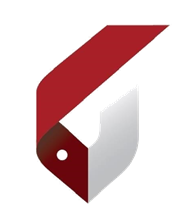
Pallasz Athéné University was founded as Kecskemét College in 2000 with the merger of 3 tertiary colleges. As a result of the merger Kecskemét College became the largest college in the Southern Plain Region with three faculties with different profiles. The last step in the development of the University Pallasz Athéné was to become a University of Applied Sciences. The university has 4 faculties: Faculty of Mechanical Engineering and Automation, the Horticultural Faculty, Faculty of Economics and Faculty of Pedagogy. The university has approx. 6000 students. Pallasz Athéné University offers both BSc and Master programmes. It has got a lot of international exchange programmes for teachers and students.
The Faculty of Pedagogy has got a big tradition and it is one of the most modern teacher education faculites with up-to-date facilities. It is a remarkable educational, training and research centre in the South Plain Region with a lot of national and international contacts.
The approx. 1300 students of Faculty can take part in four-year primary school (B.Ed.) and three-year kindergarten teacher training programmes, two-year youth advisor and child care worker post-secondary vocational courses.
University of Minho
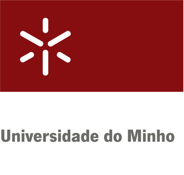
Since its establishment in 1973, the University of Minho has been one of the most prestigious Portuguese higher education institutions, and is gradually becoming more prominent internationally. Its main mission is to create, spread, and put knowledge into application, with free thinking and pluralism as its core values.
With more than 19,000 students, it offers a wide range of courses corresponding to first, second and third cycles of studies leading to undergraduate (BA/BSc), graduate (MA/MSc) or doctorate (PhD) degrees.
There are eleven schools and institutes that are divided into three campi: the schools of Architecture, Sciences, Law, Economics and Management, Engineering, Medicine, Psychology and Nursing and the Institutes of Social Sciences, Education and Arts and Humanities. Regarding education, through its interaction with more than 80 countries and 400 universities around the world, UMinho is very active in the recruitment of international students, in mobility programs, in the establishment of degrees in association, and in distance learning, vectors that allow for the internationalisation of its educational offer.
In terms of research and innovation, the dynamic participation of UMinho in partnerships with foreign research centres that translate into various scientific articles in journals with impact factor, on the one hand, and its integration in various international research networks such as, for example, the Campus do Mar – International Campus of Excellence, or the EXPERTISSUES – European Institute of Excellence on Tissue Engineering and Regenerative Medicine, are to be highlighted.
In addition, the University’s organisational structure is flexible, conducive to innovation, and interdisciplinary, favouring the exploration of emerging research areas. All 11 Schools are quite comprehensive and are a reference for their academic and scientific quality at national and international level. Lastly, the Times Higher Education 150 under 50 University Ranking 2016 ranked UMinho on the 101th position worldwide.
Management Board
We are a group of inspired teachers, researchers, and education advocates from all over Europe. Interested in finding out more about the people behind the project? Click on a person to read on.
Christine Garbe
University of Cologne
Germany
Maria de Lourdes Dionisio
University of Minho
Portugal
Tatiana Galaktionova
St. Petersburg State University
Russia
Patricia Schillings
University of Liege
Belgium
Ariana Vacaretu
Reading and Writing for Critical Thinking
Romania
Ildiko Szabó
Pallasz Athéné University
Hungary








